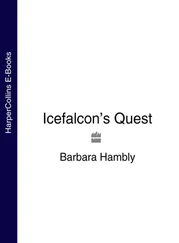Barbara Hambly - 03 Graveyard Dust
Здесь есть возможность читать онлайн «Barbara Hambly - 03 Graveyard Dust» весь текст электронной книги совершенно бесплатно (целиком полную версию без сокращений). В некоторых случаях можно слушать аудио, скачать через торрент в формате fb2 и присутствует краткое содержание. Жанр: mystery, на английском языке. Описание произведения, (предисловие) а так же отзывы посетителей доступны на портале библиотеки ЛибКат.
- Название:03 Graveyard Dust
- Автор:
- Жанр:
- Год:неизвестен
- ISBN:нет данных
- Рейтинг книги:3 / 5. Голосов: 1
-
Избранное:Добавить в избранное
- Отзывы:
-
Ваша оценка:
- 60
- 1
- 2
- 3
- 4
- 5
03 Graveyard Dust: краткое содержание, описание и аннотация
Предлагаем к чтению аннотацию, описание, краткое содержание или предисловие (зависит от того, что написал сам автор книги «03 Graveyard Dust»). Если вы не нашли необходимую информацию о книге — напишите в комментариях, мы постараемся отыскать её.
03 Graveyard Dust — читать онлайн бесплатно полную книгу (весь текст) целиком
Ниже представлен текст книги, разбитый по страницам. Система сохранения места последней прочитанной страницы, позволяет с удобством читать онлайн бесплатно книгу «03 Graveyard Dust», без необходимости каждый раз заново искать на чём Вы остановились. Поставьте закладку, и сможете в любой момент перейти на страницу, на которой закончили чтение.
Интервал:
Закладка:
Benjamin January Book 3
Graveyard Dust
Barbara Hambly
For Mary Ann
Special thanks to those, in New Orleans and elsewhere, who have helped me with this book: to Paul Nevski of Le Monde Creole; to the Staff of the Historic New Orleans Collection; to Tim Trahan of Animal Arts in New Orleans; to Priestess Miriam of the Voodoo Spirit Temple; to Greg Osborn of the New Orleans Public Library; to Adrian and Victoria; to Kate Miciak; to Diana Paxson; and always, to George.
TERMINOLOGY OF VOODOO Since voodoo terms were originally transliterated from various West African languages through creolized French, spelling is a matter of guesswork. I have in most cases used the modern Haitian spellings and names as found in Metraux's Voodoo in Haiti, the starting point of much of my research.
The shape and structure of voodoo in Louisiana in the 1830s is something that can only be guessed at. Refugees fleeing the uprisings in Sainte Domingue (the island now divided into Haiti and Santo Domingo) brought extensive voodoo beliefs with them to a land that already had its own variants of these same practices, and much depended on the religion's interaction with its immediate surroundings. In Haiti, after the black revolution, voodoo became an accepted religion; in Louisiana its evolution was marked by external pressures from the prevailing Christianity and culture. In addition, the voodoo loa tends to proliferate: There are dozens of variations of the spirit Ezili (or Erzuli), of Ogu (Ogou)-Ogu Feray, Ogu Badagri, Ogu Osanyl, and Sen (or San) Jak, Maje and others-of Baron (or Bawon) Samedi or Cemetery, also known as Baron La Croix. I have simplified as much as I can without doing violence to what I understand to be the basic tenets of the religion.
Some loa:
Ogzc (or Ogou)-warrior spirit of justice, often depicted as a soldier; frequently identified with Saint James the Greater Shango-blacksmith spirit, also warrior; a spirit of iron and fire Ezili (or Erzuli)-spirit of womanhood, in various incarnations a mother and an Aphrodite flirt Baron Samedi (or Baron Cemetery)-lord of the dead, often depicted as an obscene trickster, lord ofthe Gu?d?
Gu?d?-family of dark and dangerous spirits, spirits of power and death Papa Legba (or Limba)-ruler of the crossroads, of doorways and bridges, and of transition states; he is the first loa petitioned in Haitian ritual, that he may open the doors for the other loa to pass through Damballah-Wedo-the sacred serpent, spirit of the rainbow and of water; called also the ZombiDamballah Bosou-bull spirit of potency and strength The loa may possess worshipers of either their own identified gender, or the opposite, and may possess them to various degrees. Some "horses," as the possessed are called, do not remember things said and done during their possession; the woman I talked to who had been possessed by Ogu said she was perfectly aware of herself, but observing: craving cigars, for instance (which Ogu loves, though the woman possessed was a nonsmoker), and rum.
Other voodoo terms: v?v?s-complex designs drawn on the ground to focus or summon the loa hougan-voodoo priest or "king" in old New Orleans terminology mambo-voodoo priestess or "queen" gris gris-an amulet or charm tricken bag-amulet made of several ingredients sewn together in a bag, usually a gris-gris of ill luck or malice wanga (or ouanga)-spell wangateur or root-doctor-magician, sorcerer congris-mixture of black-eyed peas and rice, a favored food of the loa
ONE
African drums in darkness sullen as tar.
Rossini's "Di tanti palpiti" unspooling like golden ribbon from the ballroom's open windows. Church bells and thunder.
Benjamin January flexed his aching shoulders and thought, Rain coming. Leaning on the corner of Colonel Pritchard's ostentatious house, he could smell the sharp scent in the hot weight of the night, hear the shift in the feverish tempo of the crickets and the frogs. The dim orange glow of an oil lamp fell through the servants' door beside him, tipping the weeds beyond the edge of the yard with fire.
Then the air changed, a cool flash of silkiness on his cheek, and he smelled blood. The drums knocked and tripped, dancing rhythms. Fairly close to the house, he thought. This far above Canal Street the lots in the American suburb of St. Mary were large, and few had been built on yet. Ten feet from kitchen, yard, and carriage house grew the native oaks and cypresses of the Louisiana swamps, as they had grown for time beyond reckoning. January picked out the voices of the drums, as on summer nights like this one in his childhood he'd used to tell frog from frog. That light knocking would be a hand drum no bigger than a vase, played with fast-tripping fingertips. The heavy fast thudding was the bamboula, the log drum-a big one, by the sound. The hourglass-shaped tenor spoke around them, patted sharply on both sides.
One of the men on the plantation where January had been born had had one of those. He'd kept it hidden in a black oak, back in the cipridre, the swamp beyond the cane fields. Forty years ago, when the Spanish had ruled the land, for a slave to own a drum was a whipping offense. "Not meaning to presume, sir." Aeneas, Colonel Pritchard's cook, stepped from the kitchen's gold-lit arch and crossed the small yard to where January stood at the foot of the back gallery stairs. "But I'd be getting back up to the ballroom were I you." A stout man of about January's own forty-one years, the cook executed a diffident little half bow as he spoke. It was a tribute to January's status as a free man, though the cook was far lighter of skin. "Colonel Pritchard's been known to dock a man's pay, be he gone for more than a minute or two. I seen him do it with a fiddle player, only the other week."
January sighed, not surprised. The kitchen's doors and windows stood wide to the sweltering night, and the nervous glances thrown by the cook, the majordomo, and the white-jacketed waiter toward the house every time one of them cracked a joke or consumed a tartlet that should have gone on the yellow-flowered German china told its own story.
"Thank you." January drew his gloves from his coat pocket and put them on again, white kid and thirty cents a pair, and even that movement caused bolts of red-hot lightning to shoot through his shoulder blades, muscles, and spine. He'd been a surgeon for six years at the Hotel-Dieu in Paris and knew exactly how heavy a human arm was, but it seemed to him that he'd never quite appreciated that weight as he did now, after an hour and a half of playing quick-fire waltzes and polkas on the piano with an injury that hadn't healed.
A shift of the night air brought the smell of smoke again, the knocking of the drums, and the hot brief stink of blood. His eyes met the cook's. The cook looked away. Not my business, thought January, and mounted the stairs. He guessed what was going on. The air in the ballroom seemed waxy and thick as ambergris: one could have cut it in slices with a wire. Pomade and wool, spilled wine and the gas lamps over head, and-because at least two-thirds of the guests were Americans-the acrid sweet sourness of spit tobacco. January edged through the servants' door and, behind the screen of potted palmettos and wilting vines that sheltered the musicians, sought to resume his seat at the piano as inconspicuously as it was possible for a man six feet, three inches tall; built like a bull; and black as a raw captive new-dragged down the gangplank of a slave ship from the Guinea coast, and never mind the neat black coat, the linen shirt and white gloves, the spotless cravat.
Hannibal Sefton, who'd been distracting the guests from the fact that there hadn't been a dance for nearly ten minutes, glanced at him inquiringly and segued from "Di tanti" into a Schubert lied; January nodded his thanks. The fiddler was sheet white in the gaslight and perspiration ran down the shivering muscles of his clenched jaw, but the music flowed gracefully, like angels dancing. January didn't know how he did it. Since an injury in April, January had been unable to play at any of the parties that made up his livelihood in America-he should not, he knew, be playing now; but finances were desperate, and it would be a long summer. He, at least, he thought, had the comfort of knowing that he would heal.
Читать дальшеИнтервал:
Закладка:
Похожие книги на «03 Graveyard Dust»
Представляем Вашему вниманию похожие книги на «03 Graveyard Dust» списком для выбора. Мы отобрали схожую по названию и смыслу литературу в надежде предоставить читателям больше вариантов отыскать новые, интересные, ещё непрочитанные произведения.
Обсуждение, отзывы о книге «03 Graveyard Dust» и просто собственные мнения читателей. Оставьте ваши комментарии, напишите, что Вы думаете о произведении, его смысле или главных героях. Укажите что конкретно понравилось, а что нет, и почему Вы так считаете.






